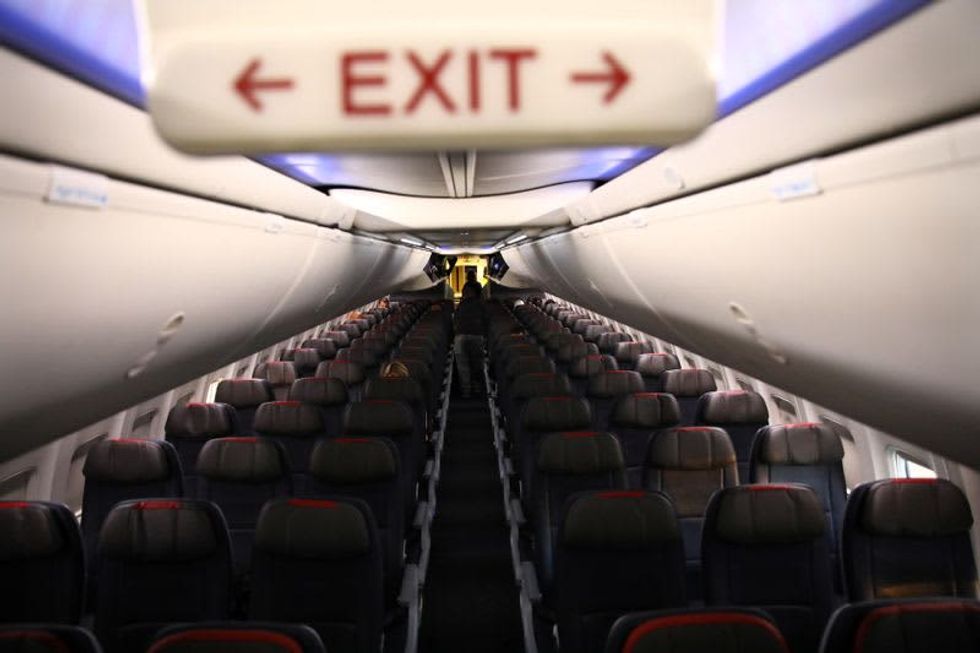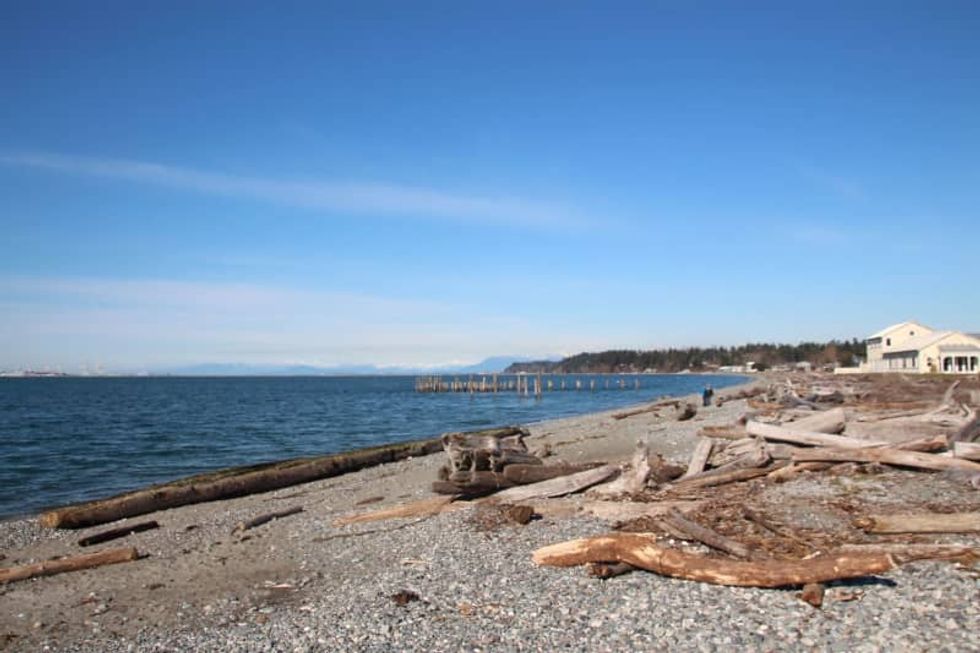Point Roberts, Washington, long prospered as an appendage of Canada. Its economy thrived on sales of gasoline, groceries and alcohol at prices considered a bargain by Canadians, whose frequent visits helped make the border station one of the busiest crossing points between the two countries.
The 1,100 Americans and Canadians who lived here thought nothing of crossing into Canada for work, school or errands, or to get to the US mainland.
Then, on March 21, 2020, in response to the pandemic, US and Canadian officials abruptly closed the entire border to non-essential travel - squeezing the peninsula like a tourniquet.
How, Point Roberts residents wondered, would they see doctors or pick up prescriptions given that they had no physicians and no pharmacies?
How could they get children to school once in-person instruction resumed, given their lack of classes beyond third grade? How would they take pets to the vet?
Many families simply left Point Bob, as people affectionately called the promontory named for Captain Henry Roberts, a British explorer.
As the population fell below 1,000, the town's 60 petrol pumps sat mostly idle: Most people had nowhere to drive to.
As the population continued to shrink - it would eventually reach about 800 - Neil Ingermann, the lone sheriff's deputy in Point Roberts, found himself with little to do.
"I've gone a couple of weeks at a time without having a call that had to be handled in person," he says.
When he took the job in January 2020 - a transfer from Bellingham, Washington, an 80-kilometres drive through Canada - he never anticipated boredom. Single and 28, Ingermann had joined a health club and a hockey league in suburban Vancouver and anticipated an active social life in the cosmopolitan city.
Now he's stuck in Point Roberts like everyone else. "I decided I'm not going to re-up for another two years here," he says.
Lack of business did in the Breakers, a nightclub that had managed to survive even after 1986, when British Columbia lifted its ban on Sunday alcohol sales and thousands of Canadians ended their weekly border treks to drink.
The border shutdown also dried up one of Point Roberts' niche industries: The six parcel depots that enabled Canadians to zip across the border to avoid duties and international charges on items ordered from Amazon and other US retailers.
Thousands of packages have stacked up in the warehouses. Point to Point Parcel manager Beth Calder fielded calls from customers as storage charges mounted. "Some of them say, 'Hold onto it; I'll wait for the border to open,'" she says. "I'm like, 'Good luck.'"
In July 2020, fire chief Christopher Carleton wrote to US president Donald Trump and Canadian Prime Minister Justin Trudeau asking for relief. "Point Roberts' citizens are living under the effective equivalent of house arrest, with only the most restricted access to the basics of life supplied by the world outside," he wrote.
Washington Governor Jay Inslee wrote Trudeau the next month, suggesting that the Canadian government issue permits allowing Point Roberts residents to drive between their town and the mainland United States as long as they didn't stop in Canada.
But Canadian officials were unmoved. That October, they made exceptions for four other isolated border towns, but they spurned Point Roberts, arguing that its residents "can access the necessities of life within their own community."
That was largely because the International Marketplace, the only grocery store in Point Roberts, remained open.
At the border, what qualifies as an essential crossing is open to interpretation by Canadian agents.
When Maggie Mori, who lives in Tsawwassen, received a notice that the water metre at her cabin in Point Roberts was spinning, she called the border station. No luck. "It just kills my husband that he can't go down and look at it," she said. "He's a plumber."
The Moris are among hundreds of Canadians who own second homes on the US end of the peninsula and treasure the community for its beaches, bald eagles and views of snow-capped peaks and passing whales.
Maintenance has been a major problem as deer graze in overgrown yards.
Jeanette Meursing and her sister Diane Thomas, who was visiting from South Dakota when the border closed, have been mowing lawns and weed-whacking for about 17 absent Canadian families at no charge.
In their 70s, the good Samaritans drew the line at one homeowner's request for grass seeding. "We're not landscapers," Meursing says.
"And when the border opens, we're sending them all an email: 'We're done.'"
If things go according to plan, that could be as early as August 9, the date Canada will allow residents and citizens of the United States to enter, provided they have been fully vaccinated against Covid-19 at least two weeks beforehand.
In the meantime, people have found ways around the forced isolation.
Monument Park, which marks the 49th parallel on the western edge of the peninsula, offers a bilateral meeting area.
On a recent sunny day, Teresa Pope, a laid-off package depot manager, and two Point Roberts friends arranged folding chairs on a lawn at the park and sat facing north, their feet grazing the US-Canada line, which was marked by metal stakes.
Across from them on the Canadian side were Kay and Rod Wilen, Pope's aunt and uncle. Security cameras monitored the get-together, and a pair of US Border Patrol agents came by to chat and check the seating alignment. An international incident was avoided.
Two days later, Julia Carlson, a Washington state notary public, showed up at the park and shook hands across the border with an American couple living in Canada. She stamped documents allowing them to refinance the mortgage on a house they own in the United States.
"If I entered the US to do this, I would have to get a negative Covid test and then spend 14 days in isolation back here in Canada," says the husband, Khue Le.
The border closure has gotten many people thinking about how little sense it makes that Point Roberts is even part of the United States.
Historians had long assumed that 19th-century diplomats had no idea that the border they agreed on in the Oregon Treaty created what geographers call an "exclave," a piece of a country separated from the whole.
But at a ceremony marking the 175th anniversary of the pact, Mark Swenson, a tech consultant and amateur historian, announced that he had some news. "Ladies and gentlemen, that is not true," he told the small crowd gathered outside the town history museum.
Swenson explained that he had found journals showing that members of a US Navy expedition preparing for the negotiations had spent days surveying the peninsula. He says they viewed the point as strategic territory because of the access it would one day provide to the major city they predicted would be built nearby.
His conclusion, after examining the evidence: "Point Roberts is not a mistake."






